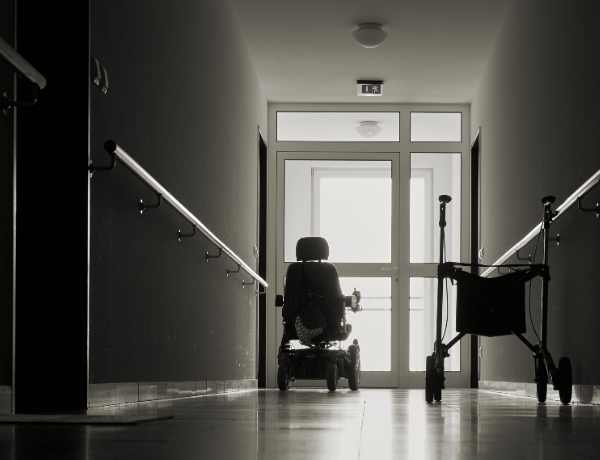Toll Free: (866) 907-1145
Local: (919) 833-3370
Toll Free: (866) 907-1145
Local: (919) 833-3370
At The Law Offices of John M. McCabe, we understand the devastating impact that nursing home abuse can have on victims and their families. If you or a loved one has been a victim of nursing home abuse in North Carolina, our experienced nursing home neglect lawyer can help.
Our elder law attorney is dedicated to advocating for the rights of nursing home residents and holding caregivers and facilities accountable for their actions. Our firm has an elder law attorney with the right experience needed to investigate claims of abuse and pursue compensation for victims and their families.
We believe that nursing home residents deserve to be treated with dignity and respect, and we are committed to fighting for their rights. Our nursing home neglect lawyer will work closely with you to understand the details of your case and provide you with personalized legal advice and representation.
If you suspect that a loved one has been a victim of nursing home abuse, it's important to take action quickly.

Nursing home abuse can take many forms, including:
A nursing home neglect attorney is an elder law attorney who specializes in personal injury cases related to nursing home abuse and neglect. Nursing home neglect lawyers assist victims in pursuing legal action against nursing homes that cause harm to elderly residents. A nursing home abuse attorney works to prove that:
North Carolina nursing home residents have several legal rights that are designed to protect their safety, health, and well-being. These rights are established under state and federal law and include:
Nursing home residents have the right to be treated with respect and dignity, regardless of their age, gender, race, religion, or health status.
Nursing home residents have the right to be free from physical, emotional, sexual, and financial abuse, as well as neglect.
Nursing home residents have the right to participate in decisions about their care and to be informed about any changes to their care plan.
Nursing home residents have the right to privacy and to be free from unnecessary intrusion.
Nursing home residents have the right to make complaints about their care without fear of retaliation.
Nursing home residents have the right to have their personal property and finances protected and to be informed of any changes or transactions involving their property or finances.
Nursing home residents have the right to receive visitors and to communicate with family and friends.
Nursing home residents have the right to practice their religious beliefs, attend religious services, and receive spiritual support.
It's important to know your legal rights if you or a loved one is living in a nursing home. If you suspect that your rights or the rights of a loved one have been violated, you should contact an experienced nursing home abuse lawyer who can help protect your legal rights and seek justice on your behalf.
Nursing home abuse can have a profound and lasting impact on victims, often causing physical and emotional trauma. Some of the most common ways that nursing home abuse can cause trauma include:
Physical abuse can cause injuries such as bruises, cuts, broken bones, and head injuries. These injuries can be painful and may require medical treatment and rehabilitation.
Emotional abuse can cause psychological trauma, including anxiety, depression, fear, and post-traumatic stress disorder (PTSD). Victims may also experience a loss of self-esteem and self-worth.
Abuse can lead to social isolation, as victims may feel ashamed or embarrassed about their experiences. They may also fear retaliation from their abusers or other residents in the nursing home.
Financial exploitation can leave victims with significant financial losses, which can cause stress, anxiety, and uncertainty about their future.
Neglect and medication errors can cause medical complications, such as infections, bedsores, malnutrition, and dehydration. These complications can have a long-lasting impact on the victim's health and well-being.
Nursing home abuse can cause victims to lose trust in caregivers and healthcare providers, making it difficult for them to seek the care they need.
It's important to seek help if you or a loved one has been a victim of nursing home abuse. Trauma caused by abuse can be addressed through therapy and other forms of support, and legal action can be taken to hold the abusers and nursing home facilities accountable for their actions.
Nursing home abuse can take many forms, and it's important to be aware of the different types of nursing home abuse to protect yourself or a loved one in a nursing home. The following are some of the most common types of nursing home abuse:
Caregiver neglect can include medication errors, not changing bedding which can cause bed sores in nursing homes, not bathing the elder often, and not providing social interaction in the nursing home.
Physical abuse includes the intentional infliction of harm to an elder. Physical abuse can be slapping, hitting, punching, or using objects to inflict harm. Other ways elders can be physically abused are when the caregiver shoves them down to sit, uses too much force when trying to move them, and many other subtle things that might not be too obvious.
Sexual abuse includes unwanted sexual contact with an elder or vulnerable adult who is unable or unwilling to be content, threatened, or physically forced to participate.
Emotional abuse includes verbal threats, assaults, threats of abuse, harassment, or intimidation.
Financial exploitation is the misuse or withholding of an elder's resources by someone else.
Abuse is an overt act inflicted on another person who may or may not be able to defend themselves. Elder abuse can include physical, emotional, sexual, or financial exploitation. Nursing home neglect can be equally harmful but tends to be more passive. For example, an overworked caregiver neglects to address the physical hygiene needs of a resident, a resident is not receiving the care they need, and it precipitates a downward cycle of neglect.
Whether overt abuse or passive neglect, both inflict physical and emotional harm on nursing home residents with the right to live in a safe, nurturing environment and have their needs addressed.
If you have a loved one who lives in a nursing home and you are concerned that they are not receiving proper care, here are some of the warning signs of nursing home neglect you can keep watch for:
When nursing home abuse or neglect occurs, some older adults are unable or unwilling to communicate the details of what happened. As a result, some may feel helpless and ashamed about the abuse, while others cannot fully understand the situation. This is why it's vital to look for signs that your family member could be the victim of abuse or neglect.
If you notice warning signs that your family member is experiencing abuse or neglect while living in a nursing home, it's time to take action. You should:
While nothing can erase the trauma of abuse or neglect, obtaining a monetary settlement can provide the financial resources to help your loved one move forward in life with a new, safer long-term care facility. Bringing a claim will also deter these nursing homes and nurses from injuring others.
If you have become aware that a loved one who is a nursing home resident has been neglected or abused and has sustained injuries, you may have grounds to file a claim for nursing home neglect. Depending on the nature of the injury, you might also file a criminal complaint. Contact our experienced team of nursing home abuse lawyers today to start your claim.

Victims of nursing home abuse or neglect suffer in so many ways. Besides the physical damages, many deals with pain, suffering, and emotional anguish resulting from the abuse and are at a higher risk for suicide2. These victims deserve compensation for all the ways they suffer.
When bringing a personal injury claim for compensation, victims can recover for both economic and non-economic damages, including:
You are not alone. Let our nursing home neglect lawyers help you get justice through the legal system. Contact us now to schedule your free case review.
A nursing home is always liable for the care and well-being of its residents. There are many reasons, however, that the care in the nursing home can deteriorate. Let's review some of those.
Training staff to do their jobs using a reasonable standard of care for their position should be a proper process. All nurses and employees should be trained to do their job well.
All staff members should be qualified for their position. Facilities should conduct a thorough background check, consult references, or have another process to ensure that new hires are qualified.
A nursing home should employ reasonable staff members to care for residents and meet their needs.
The results can be devastating when staff members do not give the proper dosage at the right time or fail to provide the medication.
Nursing home employees must give residents the dignity, privacy, and respect they are legally entitled to.
Nursing homes must provide a safe environment for those in the facility. When a visitor or third party harms a resident due to a lack of security, the nursing home can be liable for damages.
While every case is different, most elder law attorneys work on a contingency fee basis. That means they don't charge you anything unless you win a settlement in or outside court. And only when you win will the law firm charge fees. This ensures that the lawyers work hard for your case and that you never pay out of pocket. Contact our team for a free consultation to learn more about fees and the lawsuit process.
If you or a loved one has experienced nursing home abuse, it's important to seek help from these resources as soon as possible to protect your legal rights and ensure that the abuse is addressed.
Attorney Advertising | Prior results do not guarantee a similar outcome. The information on this website is for general information purposes only. Nothing on this site should be taken as legal advice for any individual case or situation. This information is not intended to create, and receipt or viewing does not constitute, an attorney-client relationship. This site is protected by reCAPTCHA and the Google Privacy Policy and Terms of Service apply.